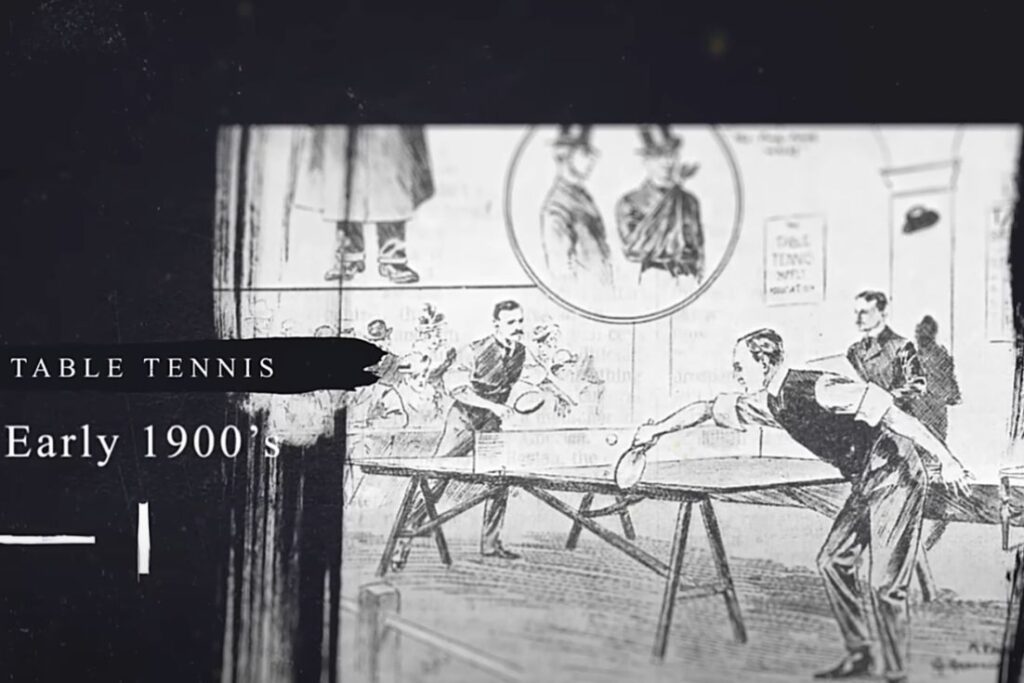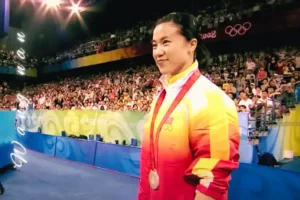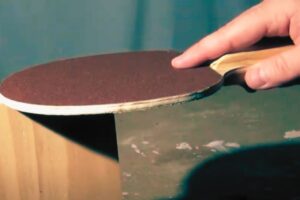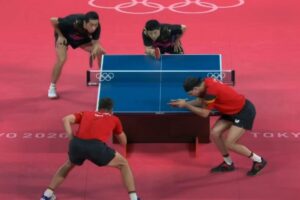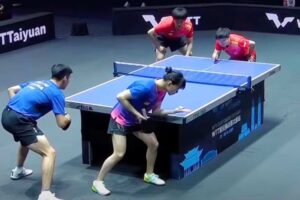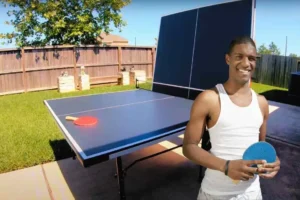Why is Table Tennis Called Ping Pong? Unveil the story behind the names – table tennis and ping pong. Explore the fascinating world of table tennis today!
Well, in this blog, we’re going to dive into the fascinating history behind this nickname and discover the connection between the rhythmic sounds of “ping” and “pong” and the sport we all love.
Whether you’re a seasoned player or just starting to explore the world of table tennis, get ready to uncover the origins of this playful name and learn how it has added a touch of fun to the game. So, let’s bounce right into the intriguing story of why is table tennis called ping pong!
How Table Tennis Called Ping Pong Earned Its Name?
The name “ping-pong” for the beloved sport of table tennis might sound playful and simple, but its origin is quite interesting. Imagine a tiny ball zooming back and forth on a small table, making rapid, rhythmic sounds as it bounces – “ping” and then “pong.” This auditory experience is at the heart of how ping-pong got its delightful name.
Ping pong became a popular pastime in the late 19th century when the game was gaining popularity in England. At that time, it was common for upper-class Victorians to play a leisurely indoor version of tennis on their dining tables, using improvised equipment like cigar box lids as paddles and champagne corks as balls. As the game evolved, it began to resemble the fast-paced, competitive sport we know today.
In 1901, an Englishman named James Gibb experienced a lightbulb moment while watching this rapidly evolving game. Struck by the distinctive “ping” and “pong” sounds the ball made as it zipped across the table, he realized that these onomatopoeic noises captured the essence of the game perfectly. Gibb thought that calling it “ping-pong” would not only be catchy but also pay homage to the unique sounds that filled the air during a match.
Soon after, in 1901, a British sports manufacturer named John Jaques trademarked the name “Ping-Pong” for the game. This move not only gave the sport an official name but also made it easier to market and sell equipment and sets to enthusiasts around the world.
Interestingly, while “ping-pong” became the go-to name for the game in England and much of Europe, it wasn’t the name used in other parts of the world. In the United States, for instance, the sport was referred to as “table tennis,” which eventually became its official name when the United States Table Tennis Association was founded in 1933.
In conclusion, the name “ping-pong” was born from the distinct and delightful sounds that the ball made as it traveled across the table. This catchy name has stuck around for over a century, reminding us of the sport’s fun and fast-paced nature, making it a beloved game enjoyed by millions worldwide. So, the next time you pick up a paddle and play, remember that you’re part of a tradition that started with a simple “ping” and “pong.”
When Did It Become a Phenomenon?
Table tennis, or as some folks call it, ping pong, has a story that’s as bouncy as its ball. Picture England in the late 1800s, when folks were looking for a way to have fun indoors with their bat and ping pong ball. They started playing a bit of tennis but on dining tables. Imagine that, playing tennis on a table!
Now, here’s where the magic happens. In 1901, a clever guy named James Gibb watched these speedy matches. He heard the ball go “ping” and then “pong” as it zoomed around. And he thought, “Why not call this game ‘ping pong’?” It was a name that sounded just like the game itself!
So, that’s when ping pong officially became a thing. A British sports maker named John Jaques even put a trademark on the name. That made it official! From that moment on, people all around the world started playing ping pong, and they still do today, using their bats to hit ping pong balls.
Now, when you hear “ping pong,” you’ll know it’s not just a fun game; it’s a piece of history that started with the sounds of ‘ping’ and ‘pong.’ Cool, right?
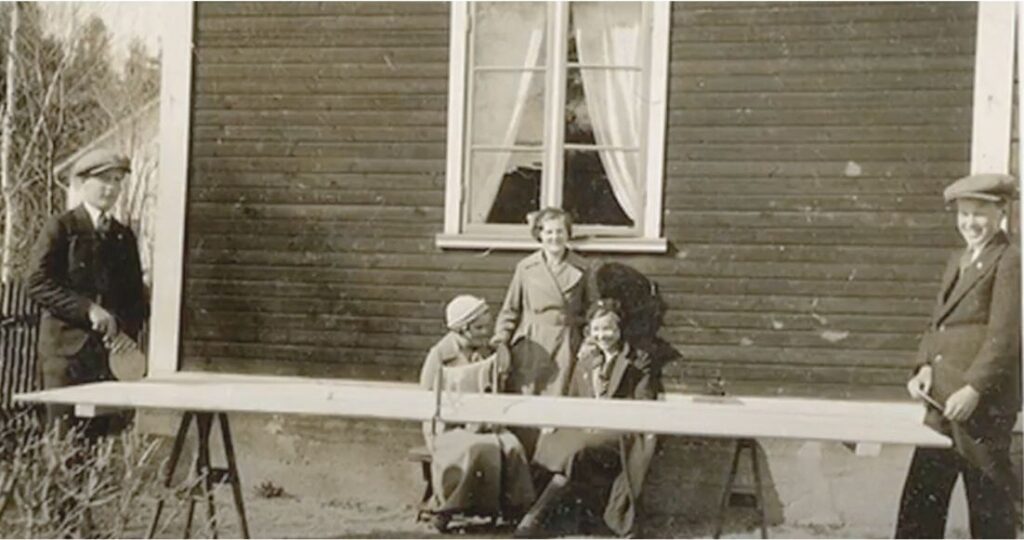
The Growing Popularity and Global Reach of the Name Ping Pong.
Have you ever wondered why is table tennis called ping pong sometimes? Well, it’s not just a name; it’s a name that has traveled all around the world! Let’s explore how “ping pong” became famous everywhere.
Long ago, in the early 1900s, there was a devoted table tennis player named James Gibb in England. He noticed something cool – the ball made a “ping” and then a “pong” sound as it bounced. James thought, “Why not call this game ‘ping pong’? It sounds just like the game itself!” And that’s how the name started.
But it didn’t stop there. Another guy named John Jaques liked the name so much that he put a special stamp on it in 1901 – he trademarked it. That made “ping pong” official!
The amazing thing about “ping pong” is that people everywhere love it. It was easy to say and made the game sound even more fun. Soon, “ping pong” traveled across oceans and borders. It didn’t matter where you were; people all over the world understood what “ping pong” meant.
So, today, when you say “ping pong,” you’re not just saying a name. You’re connecting with people from different places who all share a love for this awesome sport. It brings joy and excitement to players and fans worldwide, and it’s a name that’s here to stay, uniting the global community of table tennis enthusiasts in championships and friendly matches alike. “Ping pong” is like a secret code that unites us all, no matter where we come from. Isn’t that cool?
Table Tennis or Ping Pong- Which Term Is Correct?
So, which term is correct? The truth is, both “table tennis” and “ping pong” are correct! It just depends on the context.
– If you’re in a professional setting or discussing the sport at a high level, “table tennis” is the way to go. It’s the formal name used in international competitions.
– On the other hand, if you’re playing for fun with friends or just talking about the game casually, “ping pong” is perfectly fine. It’s the name most people use when they’re having a good time.
In the end, it’s all about your preference. Whether you call it table tennis or ping pong, the most important thing is to enjoy the game. So, grab your ping pong bat, invite some friends, and have a blast hitting that little ball back and forth across the table. It’s a fantastic game, no matter what you choose to call it!
Comparing the Difference Between Table Tennis and Ping Pong.
Table tennis and ping pong – two names, one awesome game! Let’s quickly explore the subtle differences between these two names for the same thrilling sport.
The real difference lies in formality. “Table tennis” is the formal term, commonly used in official tournaments and professional settings. It’s the name recognized worldwide by organizations like the International Table Tennis Federation (ITTF).
On the flip side, “ping pong” is more relaxed and friendly. It’s the name you might use when enjoying casual matches with friends and family.
In essence, it’s not so much a difference in the game itself but a matter of choosing the name that suits the occasion. So, whether you’re playing table tennis or ping pong, the fun remains the same!
Is It Incorrect to Call It Ping Pong?
Is saying “ping pong” instead of “table tennis” a mistake? Absolutely not! In fact, “ping pong” is where it all began. Originally coined due to the characteristic sounds of the ball bouncing on the table, it’s a term that’s been used for generations.
Ping pong is casual, friendly, and easygoing. It’s perfect for those fun-filled matches with friends and family in your basement or at the park. While “table tennis” is more formal and used in professional competitions, “ping pong” is a wonderful way to enjoy the game without any wrongdoing.
So, don’t worry; it’s not wrong at all to say ping pong. Embrace the term that brings a smile to your face and keeps the game lighthearted!
In summary, here are the most important things to remember:
- Table tennis and ping pong refer to the almost same sport, with “table tennis” being the official name and “ping pong” the informal one.
- The term “ping pong” originated in England in 1901 due to its onomatopoeic sound.
- The International Table Tennis Federation (ITTF) adopted the name “table tennis” to emphasize its status as a legitimate sport.
- “Ping pong” persists in popular culture and casual play, offering a more accessible and nostalgic alternative to “table tennis.”
FAQs – People also ask
Q1: What’s the origin of the name “ping pong” for table tennis?
A1: The term “ping pong” originated from the distinct sounds the ball made when it bounced on the table during early matches. These sounds, resembling “ping” and “pong,” led to the nickname.
Q2: Is “ping pong” an official name for the sport?
A2: While “ping pong” was the original name for the game, it has evolved into “table tennis” in more formal and international settings, such as competitions and tournaments.
Q3: Can I use both terms interchangeably?
A3: Absolutely! You can use “ping pong” and “table tennis” interchangeably depending on the context. “Ping pong” is often associated with casual, recreational play, while “table tennis” is more formal and used in professional or competitive settings.
Q4: Which name is more commonly used today?
A4: “Table tennis” is the more commonly used term in official and competitive environments. However, “ping pong” remains popular in informal and friendly settings.
Q5: Does the name affect how the game is played?
A5: No, the name doesn’t impact the rules or gameplay. Whether you call it “Table tennis” or “ping pong” means the same game, but it’s a bit like learning how to hit the ball just right when you’re playing.
Q6: Are there any significant differences between the two names?
A6: The main difference lies in the formality and historical context. “Table tennis” is seen as the more formal and modern term, whereas “ping pong” carries a sense of nostalgia and informality.
In closing
In our exploration of why is sometimes table tennis called ping pong, we’ve uncovered an intriguing history. Ping pong was the original name of the sport, inspired by the distinct sounds of the ball bouncing on the table. Over time, as the game evolved and standardized, “table tennis” emerged to emphasize the sport’s serious and competitive nature.
However, the term “ping pong” endured in casual settings, reminding us of the fun and lighthearted spirit of the game. Today, both names coexist, offering players and enthusiasts the freedom to choose the one that resonates with them. So, whether you prefer table tennis or ping pong, what matters most is the joy and camaraderie shared across the table.
